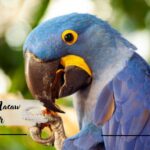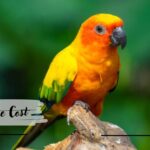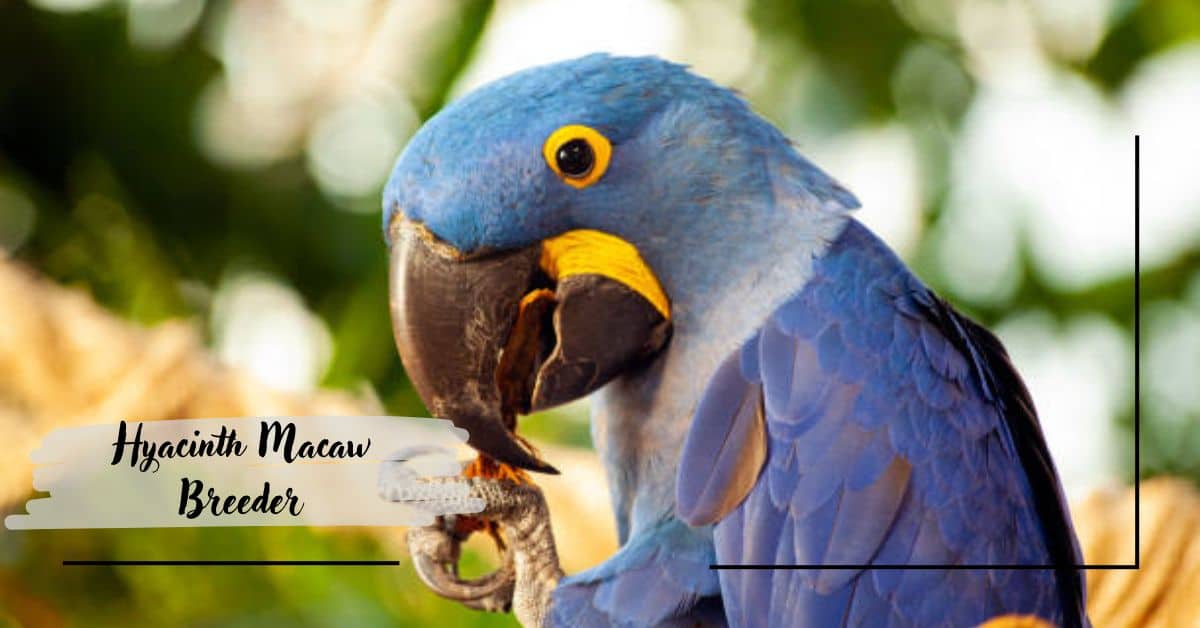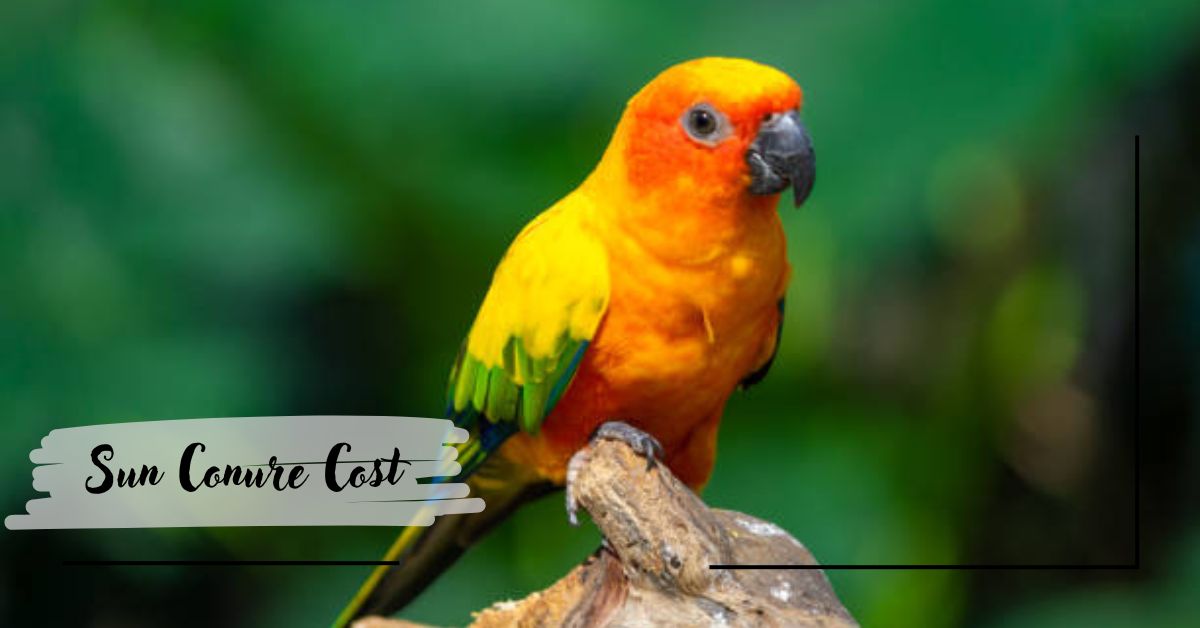Quaker Parrot Talking Alone is a common behavior. These intelligent birds often vocalize when they’re alone to fill the silence or mimic sounds they’ve heard. To manage this, provide them with plenty of toys, regular interaction, and maybe even a companion to keep them engaged and happy.
I’ve found that Quaker parrots can be quite vocal when they’re alone. My Quaker parrot, for example, often talks or makes noise when I’m out of the house. At first, I was concerned, but I learned that this is normal behavior. They talk to fill the silence and mimic sounds they’ve heard. Providing plenty of toys and spending quality time with them has helped manage their talking and keep them happy. If you’re dealing with a Quaker parrot’s vocalization, know it’s part of their nature and can be handled with some simple strategies.
What is Quaker Parrot?
Quaker parrots, also known as Monk parakeets, are small green parrots with a friendly and playful personality. They have a bright green body, a lighter green or white chest, and a hooked beak. They are social birds and enjoy interacting with people and other birds.
Is a Quaker a Parrot or a Parakeet?
Even though they are called parrots, Quaker parrots are actually a type of parakeet. Parakeets are small parrots with long tails. The Quaker parrot fits into this category because of its size and tail length, even though it shares many characteristics with other parrots.
Why is Quaker Parrot Talking Alone?
Natural Vocalization Behavior:
Quaker parrots are naturally noisy and like to talk. In the wild, they live in big groups and use their voices to communicate. When alone, they might “talk” to fill the silence or because they miss the social interaction.
Reasons for Talking Alone:
When your Quaker parrot is alone, it might make noise to keep itself company. It could also be trying to mimic sounds it has heard before, like words or household noises.
The Role of Mimicry:
Quaker parrots are great at mimicking sounds. If they hear words or noises often, they may start repeating them. This helps them feel connected and entertained.
What Kind of Pet is the Quaker Parrot?
Quaker parrots are lively and intelligent pets that love to be part of the family. They are very friendly and enjoy interacting with people and playing with toys. These parrots are smart and can learn tricks and words, so they need regular mental stimulation to stay happy. They thrive on daily attention and can get lonely if left alone for too long. Keeping them healthy involves providing a balanced diet, regular exercise, and a clean living environment. Overall, Quaker parrots are affectionate and active pets that need lots of interaction and care.
When Do Quaker Parrots Talk Alone?
Typical Times for Vocalization:
Quaker parrots often talk or make noise when they are alone for long periods. This usually happens when their owners are at work or not at home. Since they are very social birds, being alone can make them vocalize more to fill the quiet.
Situations That Trigger Talking:
They may also start talking if they hear sounds they recognize or if something in their environment changes. For instance, if you move their cage to a different room or if there are new sounds, like a vacuum cleaner or a doorbell, they might become more talkative.
How to Manage Quaker Parrot Talking Alone?
Providing Companionship and Interaction:
To help manage their vocalization, spend time playing with your Quaker parrot and interact with them regularly. If possible, having another parrot can also provide company and reduce their loneliness.
Enrichment Activities and Toys:
Give your parrot toys and puzzles to keep them busy. Toys that they can chew, climb on, or solve can help keep them entertained and reduce excessive talking.
Training Tips for Reducing Excessive Vocalization:
Teach your parrot commands like “quiet” and reward them when they listen. Avoid giving attention when they are noisy, as this can encourage them to be loud for attention.
Which Sounds and Words Do Quaker Parrots Mimic?
Common Words and Phrases:
Quaker parrots can learn to say simple words and phrases like “hello,” “goodbye,” and “I love you.” They might pick up these words from daily conversations or from the sounds they hear around them.
Environmental Sounds They Might Imitate:
Besides talking, they might mimic sounds like doorbells, phone ringtones, or even other pets’ noises. Their ability to mimic these sounds makes them very entertaining.
Tips for a Happy Quaker Parrot:
Spend Time Together Daily:
Quaker parrots need daily attention. Play with them, talk to them, and let them be part of your day. This helps them feel happy and loved.
Try New Things:
Introduce your Quaker parrot to new toys, activities, and experiences. Changing things up keeps them interested and prevents boredom.
Socialize with Other Birds:
If you can, let your parrot meet other healthy birds. This helps them learn social skills and enjoy new interactions.
Use Different Toys:
Give your Quaker parrot a variety of toys, like swings, bells, and chew toys. Changing toys regularly keeps them engaged and entertained.
Add Fun Perches:
Include different types of perches in their cage, such as wooden branches and rope swings. This helps them exercise and keeps their feet healthy.
Provide Safe Chewing Items:
Offer safe things to chew on, like untreated wood or shredding toys. Chewing helps keep their beak healthy and provides mental stimulation.
Make Their Space Interesting:
Ensure their cage is big enough and has climbing areas and hiding spots. This makes their home feel more like their natural environment.
Let Them Out to Play:
If it’s safe, let your Quaker parrot out of the cage to explore and fly. This provides more space for them to move around and play.
Teach New Tricks:
Engage your Quaker parrot with simple training sessions. Teaching them tricks or commands can be fun and strengthen your bond.
Does My Quaker Parrot Need a Friend?
Quaker parrots are very friendly and like being around others. If they’re alone a lot, they can feel lonely and unhappy. While they enjoy spending time with their human owners, having another Quaker parrot can make them feel less lonely. A second parrot can play with them and keep them company when you’re not around. This extra friend helps them stay happy and active.
Why Does My Quaker Parrot Shake Its Head? What Should I Do?
Head-shaking can be normal and may just be a way your parrot expresses excitement or communicates. However, if it’s frequent or seems excessive, it might indicate discomfort or a health issue. If your parrot shakes its head a lot or shows other signs of illness (like changes in eating habits or droppings), it’s a good idea to visit an avian vet to make sure everything is okay.
What Are Some Characteristics of Quaker Parrots?
Physical Traits:
Quaker parrots are small, measuring about 11-12 inches from beak to tail. They are mostly a bright green color, which makes them quite eye-catching. Their chest is a lighter green or white, giving them a nice contrast. They have a distinctive beak that is slightly curved, which helps them crack nuts and chew on toys. Their long tail feathers add to their elegant appearance.
Behavioral Traits:
Quaker parrots are very playful and love to interact with people and other pets. They are affectionate and enjoy being petted and talked to. In the wild, they build big nests from sticks and other materials, which shows they are clever and need a safe, social place to live. To stay happy, Quaker parrots need lots of toys and activities to keep them busy. Their energetic and friendly nature makes them great pets and fun to be around.
What Is Bad for a Quaker Parrot?
Harmful Foods and Substances:
Avoid feeding your Quaker parrot foods like chocolate, caffeine, avocado, and alcohol, as these can be toxic to them. Stick to a diet of bird-safe fruits, vegetables, and high-quality pellets.
Environmental Hazards:
Keep them away from smoke, strong chemicals, and drafts. Ensure their living space is safe and clean to prevent health problems.
How Do I Take Care of a Quaker Parrot?
Diet and Nutrition:
Feed your Quaker parrot a balanced diet with pellets, fresh fruits, and vegetables. Avoid too many seeds, as they are high in fat. Always provide fresh, clean water.
Housing and Cleaning:
Provide a spacious cage with plenty of perches and toys. Clean their cage regularly and change the bedding to keep their environment healthy and comfortable.
Health Care:
Schedule regular check-ups with an avian vet. Watch for signs of illness, such as changes in behavior or eating habits, and seek veterinary care if needed.
What Is the Difference Between The Blue And Green Quaker Parrots?
The main difference between Blue and Green Quaker parrots is their color. Blue Quaker parrots are bright blue with a lighter chest, while Green Quaker parrots are all green with a slightly lighter chest. Both types of parrots are equally smart and playful, and they need the same care, including a good diet and lots of toys. The blue color is just a special genetic variation and doesn’t affect their health or behavior. So, whether you have a blue or green Quaker parrot, they are very similar in how they behave and what they need.
Why Are Blue Quaker Parrots So Smart?
Blue Quaker parrots are just as smart as green ones because of their genetics. This means they naturally have a high level of intelligence. They can learn new words, mimic different sounds, and solve puzzles because their brains are wired to be quick learners. To keep their minds sharp, it’s important to give Blue Quaker parrots lots of different toys and activities. Playing with puzzles, learning new tricks, and exploring new things keeps their brains active and helps them stay mentally fit. Just like people, they need fun challenges to keep their intelligence growing.
Frequently Asked Questions:
What Is The Cost Of The Quaker Parrots?
Green Quaker parrots usually cost between $200 and $400, while Blue Quaker parrots are more expensive, ranging from $500 to $800 or more. The price can vary depending on the breeder and location.
Do Quaker parrots make good pets for beginners?
Yes, Quaker parrots can be good pets for beginners as long as you’re ready to spend time with them and provide them with the right care and attention.
How long do Quaker parrots live?
Quaker parrots typically live around 15 to 20 years if they are well cared for and have a healthy diet.
Can Quaker parrots be kept in an apartment?
Yes, Quaker parrots can live in apartments, but they can be noisy. Make sure you have space for their cage and toys, and be prepared for their vocalizations.
Do Quaker parrots need a lot of space?
While they don’t need a huge cage, Quaker parrots do need a good-sized cage with space to move around, climb, and play.
Are Quaker parrots easy to train?
Yes, Quaker parrots are quite smart and can learn tricks, commands, and even words with regular training and positive reinforcement.
Conclusion:
Quaker parrots are lively and intelligent birds that may talk alone when they are feeling lonely or bored. Understanding their needs for social interaction and mental stimulation can help manage their vocalization. By providing companionship, engaging toys, and regular training, you can ensure your Quaker parrot remains happy and healthy. If you have any concerns about their behavior, consulting with a vet or avian expert can offer additional guidance.









